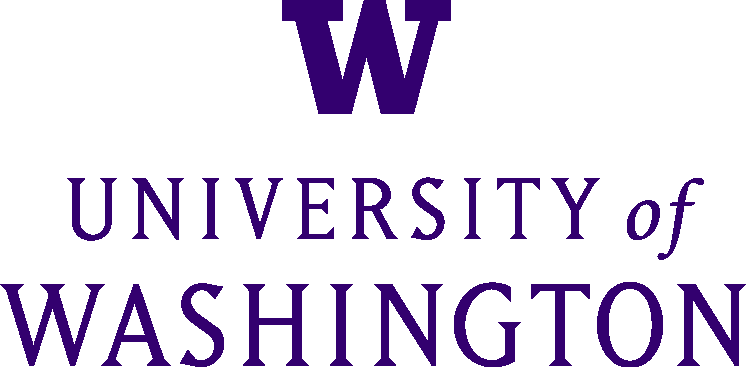
The Academic University Center - University of Amsterdam (Netherlands)
The Academic University Center – University of Amsterdam (Netherlands), is one of the foremost research institutions in the Netherlands, as well as oe of its largest hospitals. The AMC complex houses the university hospital, and the faculty of medicine of UvA as well as the Emma Children’s hospital, the Netherlands Institute of Neuroimaging, the medical department of the Royal Tropical Institute and the Amsterdam Institute for Global Health and Development. A number of biotech companies (some of which are AMC spin-offs) are also located on the premises. This concentration of expertise makes the centre a breeding ground for fruitful scientific collaboration.
AMC has 45 clinical and non-clinical departments. The hospital houses all the medical specializations that are recognized in the Netherlands. It also provides outstanding patient services of all kinds, including a high percentage of highquality referral care. About 26,000 patients are admitted to AMC wards each year, whilst the outpatient clinics see around 350,000 people annually. Day care – an intermediate form of care – is becoming increasingly popular: about 30,000 patients a year receive such care. AMC is one of the Netherlands’ eleven trauma centres.
Together with their VUmc colleagues, the AMC collaborates in eight research institutes. These institutes bring together opinion leading academic research in the field of Health & Life Sciences developed in the Amsterdam Region:
- Amsterdam Neuroscience
- Amsterdam Gastroenterology & Metabolism
- Cancer Center Amsterdam
- Amsterdam Reproduction & Development
- Amsterdam Infection & Immunity
- Amsterdam Public Health and Medical Informatics
- Amsterdam Cardiovascular Sciences
- Amsterdam Movement Sciences
Some 1500 members of staff are either fully or partially employed in medical research, which is regularly subjected to scrutiny by a panel of international scientists. Many of the departments and research groups at AMC work closely with leading foreign institutions, for example, Oxford and Harvard and the Karolinska University Hospital in Sweden. A lot of AMC students also complete part of their training as researchers or specialists abroad; the most popular destination is the United States. Collaboration frequently concerns Africa and Asia. Many projects are carried out by the department of Tropical Medicine – the only department of its kind in the Netherlands.
AMC provides modern, patient-oriented teaching for 2300 medical students, 120 medical informatics students, and hundreds of trainee nurses, paramedics and other students. All recognized specializations – including occupational health and general practice – are taught at AMC. The AMC Graduate School for Medical Sciences provides support for 1400 PhD students from all over the world. AMC also attracts outstanding, internationally recognized scientists at the postdoctoral level. Those who are seeking to set up a research group can apply for an AMC Fellowship. In addition, postdoc positions for outstanding young researchers are awarded each year.
The Medical Informatics department was established in 1994 as an independent scientific department of this center. It is intensively involved in research and in education especially in the Medical Informatics Bachelor and Master programs at the AMC.
The department’s mission is to study, develop and apply methods native to informatics and information sciences in order to better understand and to improve health care. The department focuses on the following themes: Advanced Data Analytics and Decision support (especially how to facilitate physicians to do the “right thing”), Modelling (mainly prognostic and etiological), , and Human Factors Engineering and Evaluation of eHealth, mHealth, Telemedicine, Electronic Patient Records, and of health care). The research contributes to Methodological knowledge; to the management of health information; and to the generation of Medical knowledge.
The curricula in Medical Informatics (MI) are offered in a cooperation of Heidelberg University and Heilbronn University of Applied Sciences that started in 1972. In Heidelberg the Institute of Medical Biometry and Informatics is affiliated with the School of Medicine and located in the new Medical Center of the university. In Heilbronn the faculty for Information Technology is in charge of their part of the curricula.
The first Master of Science graduations are in fall 2012. Heidelberg University offers a PhD track (Dr. sc. hum.) which is open for excellent MI MSc graduate but also for other sciences MSc who research on medical problems. The students get a strong informatics foundation: theoretical informatics, programming languages, software engineering, database, information retrieval, distributed systems and more. Medicine and health care systems teaching also starts in the first year and continues through all three plus two years. Classes and labs such a biosignal processing, introduction to bioinformatics, or trial designs in biometry build bridges between technical and medical contents. Towards the end of both BSc and MSc students can specialize: BSc for diagnosis and therapy systems (aka signal and imaging processing), health information systems, and telemedicine; MSc for digital media, signal and image processing, telemedicine, and bioinformatics. Thesis research and writing requires net 2 1/2 months for the BSc and net 5 months for MSc.
In the past Heidelberg/Heilbronn has fostered approximately 25 student and teacher exchanges with IPHIE partners. Exchanges mostly meant pursuing one’s research interest in the hosting environment. Anybody interested to contribute to these impressive statistics is strongly encouraged to contact teachers and students of Heidelberg/Heilbronn.

University Heidelberg/Heilbronn (Germany)

University of Minnesota (US)
The University of Minnesota has been a frontrunner in research, training and practice of biomedical and health informatics since 1965. The Institute for Health Informatics (IHI) leads the inter-professional discovery, application, and teaching of health information and decision sciences to improve the health of individuals and communities. The IHI has a diverse faculty from across the Academic Health Center, which includes the health professional schools of Dentistry, Medicine, Nursing, Pharmacy, Public Health, and Veterinary Medicine; University of Minnesota Health; and across the University (Management, Biological Sciences, Science and Engineering, Design etc.)
The wide-ranging research interests of faculty and students include Natural Language Processing, Telehealth, Data Mining, Ontologies, Human-Computer Interaction, Visualization, and Clinical Informatics. IHI faculty and staff are also active partners in the University’s Clinical and Translational Science Institute (CTSI), the Minnesota Department of Health’s e-Health Advisory Committee and Annual Summit, and the Minnesota Partnership for Biotechnology and Medical Genomics between Mayo Clinic and the University.
The IHI offers three graduate degrees: Master of Health Informatics, Master of Science, and Doctor of Philosophy. The University of Minnesota has been part of IPHIE since 1999, with faculty and students participating in many research and teaching exchanges. With support from Allina, Mayo Clinic, and the Minnesota Department of Health, IHI faculty have hosted the IPHIE Master Classes three times, most recently in 2012.
The Department of Biomedical Informatics was established in 1964 at the University of Utah. Located in Salt Lake City, the department is internationally recognized as a leader in biomedical informatics research and education. The department has a National Library of Medicine (NLM) training grant to support its educational programs. Master of Science, Non-Thesis Master of Science, Certificate and Doctor of Philosophy degree programs are offered along with short-term trainee-ships for students and visiting fellows. Research affiliations include the University of Utah Health Sciences Center, Intermountain Health Care facilities, the Veterans Administration Medical Center, HealthInsight (the Peer Review Organization for Utah and Nevada), and the Utah Department of Health.
As one of the largest biomedical informatics training programs in the world, the department’s faculty and students are a diverse group with a wide range of experience and interests. The Department routinely draws international scholars (both faculty and students) from across North America, South America, Europe, Asia, and Africa, including Fulbright scholars.

University of Utah (US)

University of Washington (US)
The University of Washington (UW) in Seattle offers an exceptional range of training opportunities in the field of Biomedical and Health Informatics (BHI). The Department of Biomedical Informatics and Medical Education in the UW School of Medicine is the primary home of BHI training activities, operating in collaboration with the Schools of Engineering, Nursing, Pharmacy, Public Health and Community Medicine, as well as the Information School.
The BHI academic program offers MS and PhD degrees in addition to a certificate directed to current students in other UW graduate programs seeking a credential in the field. It also offers pre-doctoral and postdoctoral funding supported by the NLM to students and scholars seeking advanced training. The BHI program engages students and faculty in interdisciplinary collaborations that contribute to best leveraging the value of the field to its broader constituencies. It draws on the strength of being located at a top-tier research institution with internationally acclaimed expertise in computational sciences, basic biomedical sciences, public health, and nursing research—located in the renowned biotechnology environment of the Pacific Northwest of the United States. Resources available to biomedical and health informatics researchers at UW include the Institute for Translational Health Sciences (http://www.iths.org), the Institute for Surgical and Interventional Simulation (http://www.isis.edu), the Center for Public Health Informatics (http://www.cphi.washington.edu), the International Partnership in Health Informatics Education (http://www.iphie.org), Amauta Global Training in Health Informatics (http://depts.washington.edu/amauta/) , among others.
For more information, please visit the website of the Division of Biomedical and Health Informatics at the University of Washington at: http://bime.uw.edu/
The Graduate Institute of Biomedical Informatics (GIBI) under College of Medical Science and Technology, Taipei Medical University, is the first graduate school in Taiwan for this inter-discipline field to bridge informatics to bio-medicine. The vision of GIBI is to integrate professional medical knowledge with computerized information technology in a way that benefit patients directly and efficiency. On the other hand we also take advantage of modern computer advancements to support the development of medical research.
The planning and development direction of GIMI’s programs are to combine medical and information science so that meets the requirements of information technology era. In doing so, the medical informatics taught here covers basic and clinical medicine in modern computer, computing IT, IT network communications, and conventional medical informatics database knowledge that can be applied to the diagnosis, treatment, education, and literature research of other relevant fields.
As the nature of biomedical informatics is multidisciplinary, GIMI has built an incredibly strong team from diversified backgrounds. The GIMI team includes healthcare professional, computer scientist, statistician, bioinformatics experts and international visiting professors. The GIMI team promotes following:
Training: Providing higher education on biomedical informatics to cater the urgent requirements of biomedical informatics experts
- Research: Building research team to work on solutions which would help to ensure a ubiquitous, quality and affordable healthcare for all
- Development: Establish partnership with various healthcare/IT organizations allowing students to develop products and go beyond training and research

